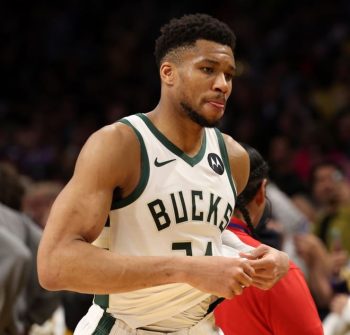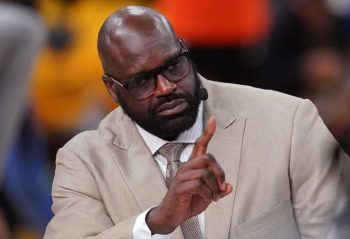NBA
Ranking the NBA’s Top 10 Head Coaches

Let’s get this out of the way from the jump: It’s not humanly possible to create a top-down list of the best coaches in the NBA that’s objectively correct. There’s simply too much unknown within their day-to-day responsibilities for us to judge their quality with 100 percent accuracy, and that’s before we even try to weigh various elements of the job by importance. Talk to 10 different league executives, and you’d get 10 different sets of rankings. Complicating matters is the fact that the league has perhaps never been so collectively strong behind the bench, with few true liabilities left as smart front offices pick the low-hanging fruit.
Now, this doesn’t necessarily mean we know nothing about coaches. As always, there are indicators here and there that, if properly utilized, can paint a broad picture and at least help us separate the best from the worst. Things like rotations, schemes, out-of-timeout plays, a track record of youth development and overall culture are all elements we can draw from to at least fill in the margins of the conversation.
Using these markers and a healthy dose of subjective preference (again, just to reiterate, a healthy dose of subjective preference), let’s rank the top bench bosses in the game as of this moment.
- Gregg Popovich, San Antonio Spurs
For as difficult as it can be to get NBA thinkers to fully agree on anything, this one comes as close to consensus as possible. Pop has been among the driving forces behind the most imitated team culture in professional sports over the last decade – one that produces other elite coaches (one of whom is on this list behind him) at nearly the same rate it produces championships. The Spurs are the model for player development despite never even approaching a rebuild during Popovich’s tenure. It’s certainly not solely on his shoulders, but no franchise has had as much consistent success persuading aging stars to put the team over themselves and take less money to stay in town. And, of course, he’s in the elite tier when it comes to the raw Xs and Os. Pop is the top head coach in the NBA, and arguably in all of North American team sports.
- Rick Carlisle, Dallas Mavericks
Another coach with a former disciple listed beneath him here, Carlisle has become the league’s poster boy for doing more with less. Only the Spurs have been more consistent out West over the last 10 years, and Carlisle has done it with a single transcendent star (Dirk Nowitzki) rather than a core featuring a top-10 player ever (Tim Duncan) flanked by a couple no-doubt Hall-of-Famers (Manu Ginobili and Tony Parker). Carlisle isn’t flashy, but his ability to extract every drop of talent from often iffy rosters is unmatched in the league. He’s strong with Xs and Os and fantastic with rotations; he was an early adopter of staggered rest periods for star players, and the way he rotates Nowitzki may have helped extend the big German’s career. He’ll make your great talent elite and your marginal talent great.
- Stan Van Gundy, Detroit Pistons
Van Gundy has been in and out of the league, but throughout his time he gets full marks in every relevant area. His youth development, particularly with gifted young big men like Dwight Howard and Andre Drummond, is top notch. His players generally love him (Howard saga aside), and he brings a solid mix of an old-school approach and modern thinking. Van Gundy is great as an in-game tactician, and he isn’t afraid to push unpopular buttons if they get the job done. There are no real weaknesses to his resume, and his track record is long and successful. Few others offer a combination of such a high floor and ceiling from the coaching position.
- Terry Stotts, Portland Trail Blazers
Like Portland star Damian Lillard, Stotts is perpetually underrated and continues to fly under the radar for many NBA fans. He took a team some had penciled in for a high lottery pick last year to the second round of the playoffs, primarily behind an offensive scheme that perfectly maximized the talents of Lillard and C.J. McCollum. Stotts is quietly an Xs and Os wizard who commonly runs tactical circles around his counterparts. His ability to maintain these detailed systems without overloading his (mostly young) players is a careful balancing act many aren’t capable of. It’s no surprise he made his bones under Carlisle in Dallas before graduating to the head spot, where he’s a safe bet to remain for the foreseeable future.
- Brad Stevens, Boston Celtics
Another play-calling maestro, Stevens was the star of a recent piece in this space that isolated individual out-of-bounds sets and the top coaches who call them. He has a flair even guys like Stotts or Pop don’t typically show off, frequently busting out genius-level calls that are visibly impressive even to casual basketball fans. He’s a strong coach elsewhere, as well; his track record naturally isn’t long yet, but he’s done very well with a blend of youth and savvy veterans in Boston to this point. His teams have generally operated as wholes greater than the sum of their parts, and Stevens could get his due in the public eye with more talent on board than ever this season.
- Mike Budenholzer, Atlanta Hawks
Long a behind-the-scenes guy for Pop as the Spurs became the most successful small-market franchise of all-time, Budenholzer has gotten his time to shine in recent years. His embrace of team-centric offense was brought on by the ostensible lack of a single superstar on his roster, but along with his former charges in San Antonio, it helped usher in a new way of thinking about ball movement and spacing within the league. Bud is known as one of the most player-friendly coaches in recent memory; you can’t find a single former player of his without several positive anecdotes up their sleeve. His work on the personnel side is a bit more questionable, but Budenholzer’s Hawks teams are in great shape behind the bench.
- Steve Clifford, Charlotte Hornets
With the possible future exception of Mike D’Antoni in Houston, no coach in the league brings with him a system that has such a notably visible – and efficient – effect on his team’s approach to the game. Clifford’s Hornets very rarely turn the ball over (they’ve posted the lowest turnover percentage in the NBA three years straight), dominate the defensive glass while punting the offensive boards intentionally and play a disciplined style of defense some might even call boring. In each case, Clifford’s strict principles have clearly trickled down and improved individuals on his roster: Kemba Walker, Nic Batum, Marvin Williams and Al Jefferson are just a few names who have seen easily the best spans of their careers once Clifford’s approach took hold.
- Steve Kerr, Golden State Warriors
Some might argue Kerr belongs higher given his significant success over the course of his two years as a head coach, but it’s important to remember that some areas of his coaching repertoire really haven’t been tested at all. His smart tweaks and perpetuation of a freer system deserve a ton of credit for unlocking the juggernaut in this group, particularly with regard to Draymond Green’s ascent as a player, but Kerr has yet to be asked to develop true youth or work with a lesser roster to achieve success. This isn’t his fault, of course: he chose a great destination for his first coaching job, and deserves the success he’s earned on top of that. But he hasn’t been so perfect in observable areas that he deserves the nod over guys with more diversified track records, even if it’s likely he’ll shoot past several of them over the next few years due to the sheer volume of his potential success. Think of this as an “Incomplete” grade with a built-in nod to his undeniable achievements.
- Erik Spoelstra, Miami HEAT
It’s fair if one chooses to knock Spo a bit for a relative lack of success since LeBron James’ return to Cleveland, but this is both overstated and not enough to cancel out his other strengths. Spoelstra took a huge leap of faith a few years ago in pioneering a small-ball style that’s swept the league ever since, and this sort of willingness to think outside the box pervades his entire coaching style. Spoelstra doesn’t care if his approach is traditional or totally off the wall, as long as it gets the job done. No coach has had to deal with the loss of more talent over the past few years; the HEAT have done about as well as one could have hoped weathering the storms of James’ heartbreaker and Chris Bosh’s devastating health situation. How the next few years go as Miami looks to build its way back to the top of the heap could determine whether Spo remains on this list or slides back.
- Tom Thibodeau, Minnesota Timberwolves
A few years ago, rating Thibs this far back would have been a near-crime in some NBA circles. He’s taken a bit of time away, though, and it’s worth noting that he’s another head coach whose entire resume is from a single, highly specific situation. Some of that is because Thibodeau made it that way; he tailored his Bulls teams to his defensive ingenuity, which has infected the entire league since he became the first coach to fully grasp the ramifications of defensive rule changes over a decade ago. He starts here for now, but could rise or fall quickly once we see him with his new personnel in Minnesota.
Honorable Mentions (in no order):
Quin Snyder, Utah Jazz: Snyder already has the player development side locked down, doing a fantastic job with numerous Jazz youngsters. He’s yet to take a team to the playoffs, though, even if there’s injury context at play.
Doc Rivers, Los Angeles Clippers: His personnel boss alter-ego damages his reputation, but Doc is still an excellent players’ coach who pulls a nice tactical rabbit out of his hat on occasion. His offenses are consistently simple but excellent – exactly as they should be given his personnel.
Michael Malone, Denver Nuggets: Malone didn’t deserve the way he was treated in Sacramento, and he’s quietly done a great job with every roster he’s been given in a still-young head coaching career.
Frank Vogel, Orlando Magic: Vogel is another coach who could move up or down quickly depending on his job with the Magic, but his teams perform consistently above expectations on both ends. Several notable Pacers players left town and saw their level of play drop sharply.
Dave Joerger, Sacramento Kings: Let’s all take a moment to pray to whichever basketball gods we worship for Joerger’s sanity and health in Sacramento. If he can affect real change where so many others have failed for reasons often outside their control, he too could move up the list in a hurry.











